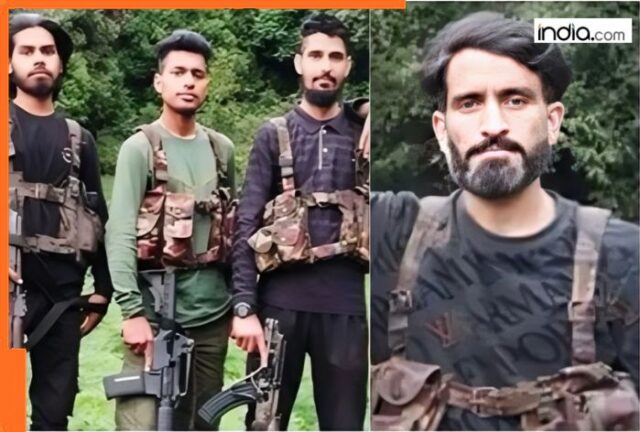In its report, the UNSC’s sanctions monitoring committee stated that the Pahalgam terror attack was carried out with the support of Pakistan-based Lashkar-e-Taiba.
Pahalgam terror attack: In a major diplomatic victory for India, United Nations Security Council (UNSC) has for the first time acknowledged the role of The Resistance Front (TRF)– an offshoot of Pakistan-based Lashkar-e-Taiba (LeT) terror group– in the April 22 Pahalgam terror attack, stating that the Lashkar-backed terror outfit claimed responsibility of the attack twice, and also shared pictures of the terror scene on its social media handles.
What UNSC report said?
In its report, the UNSC’s sanctions monitoring committee stated that the Pahalgam attack was carried out with the support of Lashkar-e-Taiba, exposing Pakistan’s implicit role in the heinous killings that brought India and Pakistan to the brink of a major war. Islamabad has repeatedly refuted charges of TRF being active on Pakistani soil, but the UNSC report exposes the claim, acknowledging the role of Pakistan-based LeT in the attack.
The UNSC report, quoting a member country, said that the terror attack in Pahalgam was not possible without the logistical and weapons’ support provided by Lashkar-e-Taiba, which used TRF as a front to carry out the barbaric attack against unarmed innocent tourists. Earlier this month, the United States listed TRF as a foreign terrorist organization and a specially-designated global terrorist outfit.
Why UNSC report vindicates India’s stance?
The UN Security Council report explicitly naming TRF as the perpetrators of the Pahalgam terror attack is a major diplomatic victory for India, and a vindication of New Delhi’s stance about Pakistan’s role in supporting cross-border terrorism. Additionally, the report is also important because decisions taken by the 1267 Sanctions Committee of the UN Security Council are unanimously adopted by all members of the UN’s apex body.
As per media reports, the report, which has been submitted to the UNSC’s 1267 ISIL and Al Qaeda Sanctions Committee, further states that Lashkar-backed TRF claimed responsibility for the Pahalgam attack twice, before backtracking while claiming its social media handles had been “hacked”.
How India avenged Pahalgam terror attack?
On May 7 midnight, Indian Armed Forces launched Operation Sindoor, a series of deadly, precision strikes on terror infrastructures deep inside Pakistan and Pakistan-occupied Kashmir (PoK), to avenge the heinous Pahalgam terror attack in which Pakistan-backed terrorists terrorists gunned down 26 civilians, mostly Indian Hindu tourists in Kashmir valley.
In a press briefing in national capital New Delhi Delhi hours after the military strikes, Foreign Secretary Vikram Misri, Colonel Sofiya Qureshi and Wing Commander Vyomika Singh revealed the details and objectives of Operation Sindoor. They said that a total of nine terror camps of Lashkar-e-Taiba (LeT), Jaish-e-Mohammed (JeM), and Hizbul Mujahideen, were targeted by Indian forces, four of which are in mainland Pakistan while the remaining in Pakistan-occupied Kashmir (PoK).
Following Operation Sindoor, India and Pakistan were engaged in a conflict that last nearly four days before a ceasefire was announced.

















































